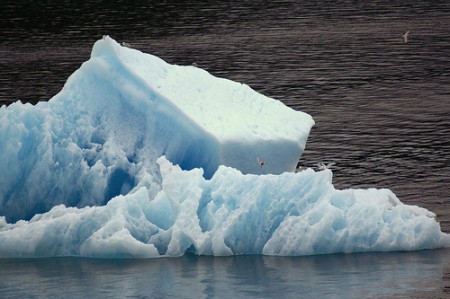
With the Copenhagen conference on climate change only two weeks away, it remains doubtful whether a legally binding agreement on climate change will emerge. Here a run-down of the (mostly vague) pledges made by key greenhouse gas emitters in the wake of the conference:
Cuts
The Copenhagen agreement is supposed to set targets for industrialized countries to cut their greenhouse gas emissions by 2020. The European Union has promised to cut emissions by 20% from 1990 levels by 2020. Japan has announced it is ready to cut emissions to 25% below 1990 levels if other countries make similar pledges. The United States has so far resisted naming any numbers regarding its emission cuts; yet the Obama administration is considering setting a provisional target to improve the changes for an effective treaty to emerge from Copenhagen.
Despite Obama’s pledge to take drastic measures on climate change during his election campaign, his administration has so far failed to take decisive action. A domestic bill on climate change, narrowly passed by the House of Representatives, is currently under Senate review. But powerful and well-resourced lobby groups, determined to prevent any climate bill from passing, contribute to the Senate’s inertia. In the United States, there are currently about five lobbyists opposing climate change legislation for every member of Congress. Powerful lobbying against climate legislation by multinationals and the traditional energy sector is also taking place in Australia, Canada and the European Union.
Meanwhile, conflicting messages are coming out of Russia. On one hand, Russia has failed to make any pledges to cut greenhouse gas emissions ahead of the Copenhagen conference. The Kremlin has insisted that it was unwilling to sign on to a treaty that will jeopardize Russian economic development. On the other hand, however, Russian President Dmitry Medvedev has publicly acknowledged the need to take drastic action on climate change and warned that failure to act would lead to catastrophic consequences. Yet observers doubt that Russia can generate the necessary political will to implement decisive measures on climate change, fearing instead that Russia’s emissions will increase considerably by 2020.
No developed country has so far agreed to cut its emissions to the level UN scientists recommend – 25 to 40 percent by 2020 – to prevent catastrophic climate change. According to the most comprehensive CO2 study to date, global temperatures will increase by an average of 6 degrees Celsius by the end of the century if nothing is done to limit greenhouse gas emissions.
Restraints
A main weakness of the Kyoto agreement was that large developing countries like Brazil, China and India did not have to take any action under the treaty. This time, however, wealthier developing countries are expected to participate in concrete efforts to halt global warming. Although they may not be expected to make actual cuts, they will be asked to restrain the growth of their emissions. Brazil has indicated that it would be ready to reduce its emissions by up to 40 percent mainly by slowing down deforestation. China has stated its readiness to cut CO2 emissions per unit of GDP by 2020 and may be able to determine a date when it expects its emissions to peak. India said it would limit the growth of its greenhouse gas emissions but refuses to commit to any binding targets.
Both China and India insist that climate change is a problem caused by the rich, industrialized countries, and that they will have to make the necessary sacrifices to reverse global warming and help ameliorate its harmful effects around the world. India’s environment minister has bluntly stated: “Internationally legally binding [greenhouse gas] reduction targets are for developed countries and developed countries only.”
China has called for rich countries to provide 1% of their GDP to help developing countries adapt to changes caused by climate change. Meanwhile, a declaration drafted by a group of developing countries that are most vulnerable to climate change is asking developed states to commit 1.5 percent of their GDP to help them adapt to climate change and build low-carbon economies.
Results?
It doesn’t look like anything revolutionary will come out of Copenhagen. Perhaps we will just have to contend with a statement of principles signed by the participants, expressing their commitment to work out a legally binding treaty next year.
Links
The Intergovernmental Panel on Climate Change (IPCC) is the leading body for the assessment of climate change, established by the United Nations Environment Programme (UNEP) and the World Meteorological Organization (WMO).
United Nations Framework Convention on Climate Change (UNFCCC) is the primary international treaty addressing climate change. This site provides background on climate change and information on meetings sponsored by the Convention.
Harvard Project on International Climate Agreements seeks to identify key design elements of a scientifically sound, economically rational and politically pragmatic post-Kyoto international policy architecture for global climate change. Its website features a comprehensive collection of research papers on climate change policy issues.
RealClimate is a commentary site on climate science by working climate scientists for the interested public and journalists. The site aims to provide a quick response to developing stories and offer the context sometimes missing in mainstream commentary.
World Wildlife Fund (WWF) Climate Change Campaign features background information as well as news on climate change. It also provides information on how individuals, businesses and elected officials can take action to slow climate change.
This blogpost is a shortened version of this month’s ISN Special Issue newsletter on the Copenhagen conference. Our Special Issue newsletters provide in-depth coverage of a subject or region-specific topic in international affairs, containing a detailed list of links to relevant websites, research papers and other resources. To subscribe to the newsletter, sign up at http://www.isn.ethz.ch/isn/Services/Newsletters.

